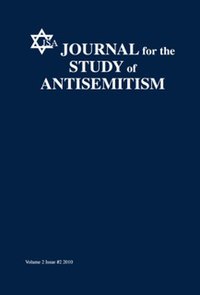 | |
| Language | English |
|---|---|
| Edited by | Steven K. Baum |
| Publication details | |
| History | 2009-present [ citation needed ] |
| Frequency | Biannually |
| Standard abbreviations | |
| ISO 4 | J. Study Antisemitism |
| Links | |
The Journal for the Study of Antisemitism is a biannual peer-reviewed academic journal published in the United States on the anthropological, sociological, psychological, legal, historical, philosophical, and political aspects of contemporary antisemitism.